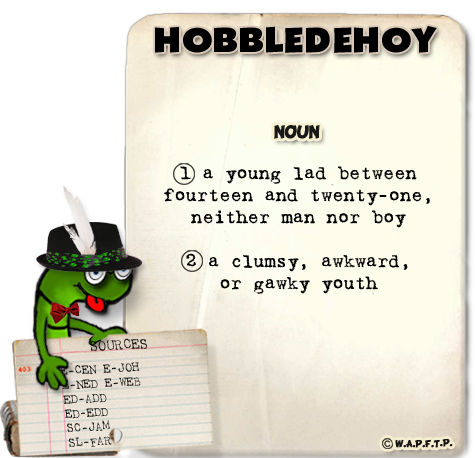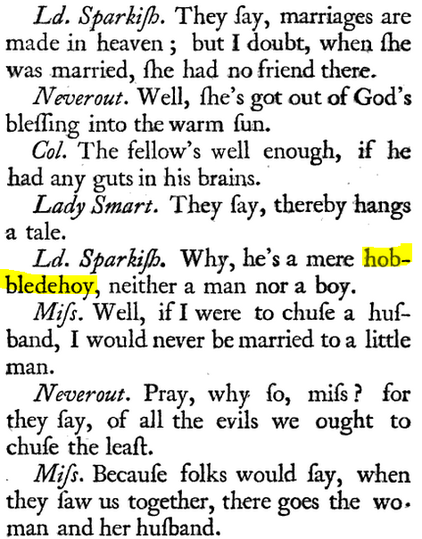|
CLICK HERE FOR KEY TO SOURCES
ETYMOLOGY From: A New English Dictionary on Historical Principles: A colloquial word of unsettled form and uncertain origin. One instance in hoble- occurs in 1540; otherwise hober-, hobber-, are the prevailing forms before 1700; these, with the forms in hobe-, hobby-, suggest that the word is analogous in structure to Hoberdidance, Hobbididance, and hobidy-booby.: cf. also hoberd. Some of the variants are evidently due to the effort of popular etymology to put some sense into an odd and absurd-looking word. It is now perhaps most frequently associated with hobble, and taken to have ludicrous reference to an awkward and clumsy gait. The word has been often discussed: see Ray, Jamieson, Forby, Skeat (in Philol. Trans. 1885–6, 302). The form has naturally suggested a French origin. Jamieson held that ‘hoberdehoy has been undoubtedly borrowed from the French’, and suggested, for first part, French hobereau, hobreau hobby (the hawk), also ‘petit gentilhomme campagnard’ (Littré), according to Dict. Trévoux, ‘also applied to those who are apprentices or novices in the world’. But no confirmatory evidence has been found in French or even in Anglo-French. EXAMPLE From: The Works of Dr. Jonathan Swift Volume XI, 1755 A Complete Collection of Genteel and Ingenious Conversation, According to the Most Polite Mode and Method. In three dialogues. Dialogue I, Polite Conversation
0 Comments
Leave a Reply. |
Archives
September 2021
|

